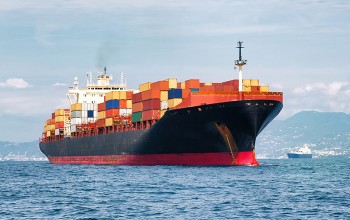GST and Export-Import
- January 22, 2015
- Posted by: CTS Consulting Co.
- Categories: Economics, International

GST is a destination based tax on consumption of goods or services. It is essentially a single tax on the supply of goods and services, all the way from manufacturers to consumers. GST is levied only on value addition at each stage. Earlier taxes export &Import were regulated by Custom & Excise laws. Now everything is merged in one i.e GST.
- As per Section 2 (5) of IGST Act, 2017, Export means taking out of India to a place outside India.
- As per Section 2 (10) of IGST Act, 2017 import means bringing in India from a place outside India.
EXPORT
Treated as zero-rated supply (zero–rated supply refers to items that are taxable, but the rate of tax is nil)
IMPORT
Treated as inter-State trade as accordingly IGST is applicable.
Export would be treated as zero-rated supply. Under zero-rated supply IGST paid on export goods or the input tax credit proportionate to the goods and services consumed in goods exported under bond /LUT would be refunded.
Article 269 (1) (a) constitutionally mandates that the supply of goods or of services or both in the course of import into the territory of India shall be deemed to be supply of goods, or of services, or both in the course of inter-State trade or commerce for levy of integrated tax. So import of goods would be subject to integrated tax.
Integrated Tax on goods imported into India shall be levied and collected in accordance with the provisions of Section 3 of the Customs Tariff Act, 1975 at the point when duties of Customs are levied on the said goods under the Customs Act, 1962, on a value as determined under the Customs Tariff Act, 1975
IGST on imports will be levied at value of imported article as determined under the Customs Act plus duty of customs and any other sum chargeable in addition to customs duty..
- Deemed Export: Deemed exports refer to those transactions in which goods supplied do not leave country, and payment for such supplies is received in para 7.02 of Foreign Trade Policy 2015-2020 shall be regarded as ‘deemed exports’, provided that goods are manufactured in India.
- Deemed Import: As per the definition of ‘supply’ under CGST law, import of services for a consideration whether or not in the course or furtherance of business is deemed to be supply and as per the IGST law, supply of services in the course of import into the territory of India, shall be deemed as supply of services in the course of inter- State trade or commerce. Accordingly, Integrated Tax would be levied on import of services.
Taxes on Exports under GST
As per the provisions of IGST law, export of goods and/or services are to be treated as “zero rated supplies” and a registered taxable person exporting goods or services shall be eligible to claim refund under one of the following two options:
- Export under bond or letter of undertaking without payment of Integrated Tax and claim refund of unutilized input tax credit.
- Export on payment of Integrated Tax and claim refund of the tax so paid on goods and services exported. The aforesaid refunds will be subject to rules, safeguards and procedures as may be prescribed.
Taxes on Import under GST
- Basic Duty, IGST and Cess are levied on Import.
- Even after introduction of GST, there would be no change in Basic Custom duty and countervailing duty, anti-dumping or safeguard duties levied under section 9BB of the Customs Tariff Act, 1975.
- It is believed that GST will provides benefits sectors include leather and leather products; furniture and fixtures; agricultural sectors; coal and lignite; agricultural machinery; industrial machinery; other machinery; iron and steel; railway transport equipment; printing and publishing; and tobacco products.
Refund of input tax credit in case of export of goods
- In case of zero rated supplies made without payment of tax, refund of input tax credit will be available as per proviso (i) to section 54(2) of CGST Act.
- No refund of unitized input tax credit shall be allowed in cases other than exports including zero rated supplies or in cases where the credit has accumulated on account of rate tax on inputs being higher than the rate of tax on output supplies, other than nil rated or fully exempt supplies – first proviso to section 54(3) of CGST Act.
- No refund of unutilized input tax credit shall be allowed in cases where the goods exported out of India are subjected to export duty – second proviso to section 54(3) of CGST Act.
- No refund of input tax credit shall be allowed if the supplier of goods or services avails duty drawback of CGST / SGST / UTGST or claims refund of IGST paid on such supplies – third proviso to section 54 (3) of CGST Act.
Drawback – “Drawback” in relation to any goods manufactured in India and exported, means the rebate of duty, tax or cess chargeable on any imported inputs or on any domestic inputs or input services used in the manufacture of such goods – section 2(42) of CGST Act.
Export stuffing procedures
As per Circular No. 26/2017-Customs dated 1st July, 2017 the procedure of sealing of containers with export goods by CBEC officials is no more required. Instead, self-sealing procedure shall be followed subject to the following: (Applicable from 01/09/2017)
- The exporter shall be under an obligation to inform the details of the premises whether a factory or warehouse or any other place where container stuffing is to be carried out, to the jurisdictional customs officer.
- The exporter should be registered under the GST and should be filing GSTRI and GSTR2. Where exporter is not a GST registrant, he shall bring the export goods to a Container Freight Station/Inland Container Depot for stuffing and sealing of container. However, in certain situations, an exporter may follow the self-sealing procedure even if he is not required to be registered under GST Laws. Such an exception is available to the Status Holders recognized by DGFT under a valid status holder certificate issued in this regard.
- Any exporter desirous of availing this procedure shall inform the jurisdictional Custom Officer of the rank of Superintendent or Appraiser of Customs, at least 15 days before the first planned movement of a consignment from his/her factory/ premises, about the intention to follow self- sealing procedure to export goods from the factory premises or warehouse. The jurisdictional Superintendent or an Appraiser or an Inspector of Customs shall visit the premises from where the export goods will be stuffed & sealed for export. The jurisdictional Superintendent or Inspector of Customs shall inspect the premises with regard to viability of stuffing of container in the premises and submit a report to the jurisdictional Deputy Commissioner of Customs or as the case may be the Assistant Commissioner of Customs within 48 hours. The jurisdictional Deputy Commissioner of Customs or as the case may be the Assistant Commissioner of Customs shall forward the proposal, in this regard to the Principal Commissioner/Commissioner of Customs who would grant permission for self-sealing at the approved premises. Once the permission is granted, the exporter shall furnish only intimation to the jurisdictional Superintendent or Customs each time self-sealing is carried out at approved premises. The intimation, in this regard shall clearly mention the place and address of the approved premises, description of export goods and whether or not any incentive is being claimed.
- Where the visit report of the Superintendent or an Appraiser or an Inspector of Customs regarding viability of the stuffing at the factory/ premises is not favorable, the exporter shall bring the goods to the Container Freight Station /Inland Container Depot/Port for sealing purposes.
- Self-Sealing permission once given by a Principal Commissioner/Commissioner of Customs shall be valid for export at all the customs stations. The customs formation granting the self-sealing permission shall circulate the permission along with GSTIN of the exporter to all Custom Houses/Station concerned.
- Transport document for movement of self-sealed container by an exporter from factory or warehouse shall be same as the transport document prescribed under the GST Laws. In the case of an exporter who is not a GST registrant, way bill or transport challan or lorry receipt shall be the transport document.
- The exporter shall seal the container with the tamper proof electronic-seal of standard specification. The electronic seal should have a unique number which should be declared in the Shipping Bill. Before sealing the container, the exporter shall feed the data such as name of the exporter, IEC code, GSTIN number, description of the goods, tax invoice number, name of the authorized signatory (for affixing the e-seal) and Shipping Bill number in the electronic seal. Thereafter, container shall be sealed with the same electronic seal before leaving the premises.
- The exporter intending to clear export goods on self-clearance (without employing a Customs Broker) shall file the Shipping Bill under digital signature.
- All consignments in self-sealed containers shall be subject to risk based criteria and intelligence, if any, for examination / inspection at the port of export. At the port/ICD as the case may be, the customs officer would verify the integrity of the electronic seals to check for tampering if any in route. The Risk Management System (RMS) is being suitably revamped to improvise the interdiction/ examination norms. However, random or intelligence based selection of such containers for examination/scanning would continue.
Recent Clarification:
- Exporters can furnish bond or letter of undertaking instead of paying Integrated GST at the time of exporting goods and services with effect from July 1. In case the IGST has been paid, the exporters can seek refund of the tax paid, according to a Customs circular on export procedure in the GST regime. IGST is levied on the supply of any goods and services in the course of inter-state trade or commerce. As per the IGST Act, export and import of goods and services are deemed to be a supply in the course of inter-state trade or commerce. “Supplies of goods and services for exports have been categorised as ‘Zero Rated Supply’ implying that goods could be exported under bond or Letter of Undertaking without payment of integrated tax followed by claim of refund of unutilised input tax credit or on payment of integrated tax with provision for refund of the tax paid.
- Starting July 1, 13 cesses have ceased to exist with the rollout of the Goods and Services Tax (GST). However, seven cesses will continue as they relate to customs or goods that are not included in the GST. These include education cess secondary and higher education cess on imported goods. Similarly, cesses on petroleum products will also continue as these are outside GST. These include the cess on crude petroleum oil under the Oil Industry Development Act, 1974, the road cess or additional duty of excise on motor spirits and high speed diesel oil, special additional duty of excise on motor spirit and the NCCD on tobacco and tobacco products and crude petroleum oil.
- In pursuance of the first proviso to rule 46 of the Central Goods and Services
Tax Rules, 2017 read with notification No. 4/2017-Integrated Tax, dated the 28th June 2017, the Central Board of Excise and Customs notifies that a registered person having annual turnover more than Rs 5 Cr in the preceding financial year shall mention the 4 digits of Harmonised System of Nomenclature (HSN) Codes in Tax Invoice and in case of registered person having turnover more than Rs 1 Cr & upto Rs 5 Cr in the preceding financial year shall mention the 2 digits of Harmonised System of Nomenclature (HSN) Codes in Tax Invoice. This is applicable from 1st day of July, 2017.

